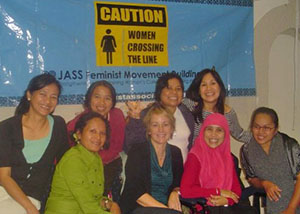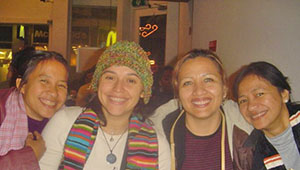Three days, twenty-five participants, an immeasurable exchange of learning and deep political debate! JASS teams and board met to share and assess strategies, surface assumptions and challenges, and generate knowledge about movement-building. For a visual impression of who was there, see JASS’ Facebook fanpage. Below, some gems to whet your appetite for the full report.
Some big political themes and core practical questions the meeting explored:
Power: Applying and questioning our analysis of the world using the three faces of power (visible, hidden, and invisible); the personal is political; and building alternative power to, within, with – collective power.
Hegemony: One of the most complex dynamics of power – understanding and fighting the ideas, ideologies, and discourses that normalize and reproduce inequality and oppression.
Resistance + Transformation: Understanding and reinforcing women’s resistance, from the personal to the public, as a critical element of transformation; how do we strengthen individual and collective actions that cross the line while navigating the inevitable risk and conflict?
- What is political consciousness and how is it nurtured in new forms of activist leadership?
- How do we come together across differences of class, race, age, sexuality, and location; and sustain our organizing, common agendas and collective action?
- How do we generate and mobilize knowledge that challenges the dominant thinking that marginalizes/disempowers women and feminists?
- What does local-to-global solidarity look like and how do we deal with the inherent conflict and possibilities of such political relationships?
Power is dynamic – nothing will remain the same. All our successes produce backlash, so we have to plan for that and work on our safety… ~ Lisa VeneKlasen
JASS Today
We situated JASS in time and space. First, participants grouped themselves physically by region and introduced themselves by country. Then, we mapped JASS’ history, noting how our organization evolved out of personal and political relationships in different social justice struggles – its strength – and how it has been shaped by the action and reflection of all the regions involved. Read full report here.
I have been in the (Honduran) feminist movement for 16 years– fighting for food, jobs, against violence. I thought it could not get worse, but bang! A coup! I never expected to experience a gun in my chest, or to participate in a hunger strike for 18 days. This coup is part of the financial crisis, because the right and the fundamentalists have been learning that they can get more. Their forces are so unified. We have to strengthen our movements – learn what we have done and what we haven’t. ~ Daysi Flores
Learning About…
Mobilization and Solidarity
Read the in-depth analysis of urgent action strategies in Mesoamerica carried out by JASS and key allies, Petateras and RIF. To experience the repression and violence of the coup in Honduras, as well as the response of the Feminists in Resistence, watch the video.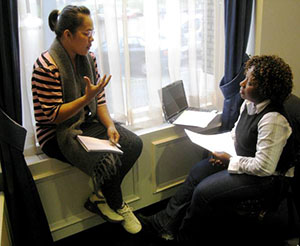
Consciousness, Activist Leadership and Organizing
In the second year of JASS Southern Africa’s movement-building in Malawi, Hope Chigudu and Sindi Blose facilitated two national workshops with grassroots women activists living with HIV. Their experiences indicate the transformative potential of a uniquely holistic and boldly feminist process.
Nani Zulminarni JASS Southeast Asia’s Co-Coordinator, gave an in-depth analysis on the strategies of PEKKA, the Women-Headed Households Empowerment Program she founded in Indonesia. PEKKA overturns the received wisdom of individual loans as a microcredit magic bullet for poverty. By contrast, PEKKA women form collectives to work for economic independence and political voice. They always start with their own savings – even pennies – breaking patterns of dependence and consumerism.
“I saw (in Malawi) how change comes in on the margins – as one woman crosses the line by challenging feared institutions – the police, the hospital, the district administrator. I saw how one woman can change the whole community.” ~ Hope Chigudu
JASS Year in Review 2009
Honduras: Women Targeted for Resisting Coup
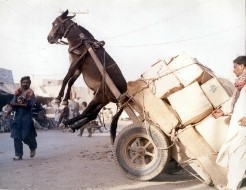 Refining Our Theory of Change
Refining Our Theory of Change
Facilitator Jethro Petitt humorously reminded us why affirming – and reaffirming – our core philosophy, vision and, well, theory of change matters!
“Recognize the power of feminism to disturb the collective and to reveal deeply rooted authoritarianism.” ~ Atila Roque
Lessons from the World Social Forum
by Atila Roque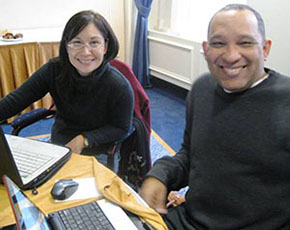
- Create an open space for conflict and diversity, bounded only by core principles. Forcing us to fit one shape would kill us.
- Trust your own instinct and ideas.
- Recognize the power of feminism to disturb the collective and to reveal deep enrooted authoritarianism. The WSF was challenged by feminism and changed completely from its first to its second year.
- Cultivate the participation of youth.
“People say, ‘Oh, you’re just a Woodstock'” I say, yes! World Social Forum is also about celebration, enjoyment, party. It’s an alternative Woodstock.” ~ Atila Roque
Lessons from the Global Campaign for Microbicides
by Lori Heise
Key elements for a new form of transnational organizing:
- Clarity of purpose and shared culture.
- Support scaffolding – The right structure, the right people, the right information flow.
- Commitment to mutual accountability – N to S, leadership and staff. Transnational organizations can get caught between expectations of donors and constituencies.
- Identity power – In addition to the power of privilege and access, there is a power that comes from being marginal – from the South, a lesbian, etc.
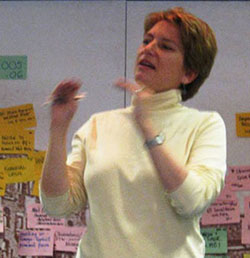
Organization-building Principles
- Purpose – not the mission statement but the outcomes of the work. What do we want to accomplish? Not a logframe – but the compass that drives you, your deepest sense of purpose – to help you say yes or no.
- Relationship – collaborating as partners. When you engage, you don’t get answers but rather powerful questions that will provoke. Being curious is encouraged.
- Empower self and others. We understand that when younger women are silenced, we need to counter that kind of mechanism. But if I as white woman from North keep quiet and never speak, something dysfunctional is happening.
- Accept freedom and choose accountability.
“To be confused is a sign of innovation and change. If we stay with same logic we’ll stay in the same place – so congratulations on confusion as well as clarity.” ~ Ellen Sprenger

